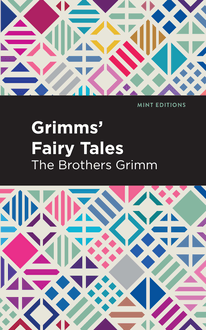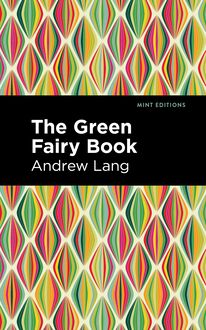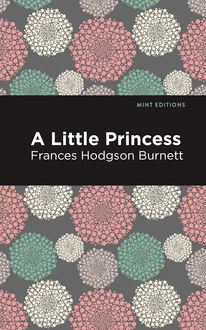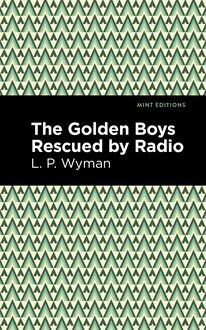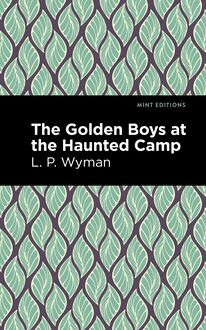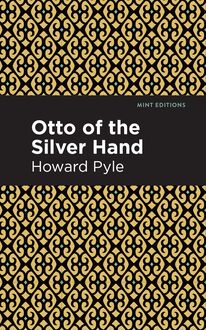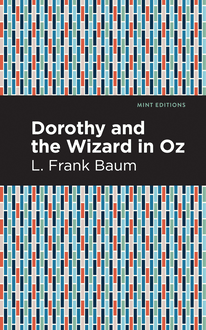-
 Univers
Univers
-
 Ebooks
Ebooks
-
 Livres audio
Livres audio
-
 Presse
Presse
-
 Podcasts
Podcasts
-
 BD
BD
-
 Documents
Documents
-
- Cours
- Révisions
- Ressources pédagogiques
- Sciences de l’éducation
- Manuels scolaires
- Langues
- Travaux de classe
- Annales de BEP
- Etudes supérieures
- Maternelle et primaire
- Fiches de lecture
- Orientation scolaire
- Méthodologie
- Corrigés de devoir
- Annales d’examens et concours
- Annales du bac
- Annales du brevet
- Rapports de stage
La lecture à portée de main
Vous pourrez modifier la taille du texte de cet ouvrage
Découvre YouScribe en t'inscrivant gratuitement
Je m'inscrisDécouvre YouScribe en t'inscrivant gratuitement
Je m'inscrisEn savoir plus
Vous pourrez modifier la taille du texte de cet ouvrage
En savoir plus

Description
The Story of Doctor Dolittle (1920) is a children’s fantasy novel by Hugh Lofting. The novel is the first in a series of fifteen books featuring Doctor Dolittle, a character created by Lofting in letters written to his wife and children at home while he served in the Great War. Beloved by generations of adults and children for their imaginative and moral worldview, Lofting’s books have inspired numerous adaptations for theater, film, and television.
Doctor John Dolittle is an ordinary physician with an extraordinary gift. Struggling to maintain his clinic, which he runs at the house of his older sister, Dolittle turns his attention to caring for his vast collection of animals from around the world. When his parrot Polynesia teaches him how to speak with animals, however, his dwindling fortunes are reversed, and Dolittle establishes a successful veterinary clinic. As word of his skill reaches others, he is recruited for a voyage to Africa, where help is needed in order to cure an epidemic ravaging the monkey population. When a shipwreck leaves him stranded in a hostile kingdom, however, Doctor Dolittle needs the help of the very monkeys he has come to save in order to escape the clutches of Jolliginki’s king. Featuring pirates, crocodiles, and a magical creature known as a pushmi-pullyu, The Story of Doctor Dolittle is a delightful work of fantasy for children and adults alike.
With a beautifully designed cover and professionally typeset manuscript, this edition of Hugh Lofting’s The Story of Doctor Dolittle is a classic of English children’s fiction reimagined for modern readers.
Sujets
Informations
| Publié par | Mint Editions |
| Date de parution | 02 mars 2021 |
| Nombre de lectures | 0 |
| EAN13 | 9781513274577 |
| Langue | English |
| Poids de l'ouvrage | 3 Mo |
Informations légales : prix de location à la page 0,0300€. Cette information est donnée uniquement à titre indicatif conformément à la législation en vigueur.
Extrait
The Story of Doctor Dolittle
Hugh Lofting
The Story of Doctor Dolittle was first published in 1920.
This edition published by Mint Editions 2021.
ISBN 9781513269573 | E-ISBN 9781513274577
Published by Mint Editions®
minteditionbooks.com
Publishing Director: Jennifer Newens
Design & Production: Rachel Lopez Metzger
Project Manager: Micaela Clark
Typesetting: Westchester Publishing Services
C ONTENTS
I. P UDDLEBY
II. A NIMAL L ANGUAGE
III. M ORE M ONEY T ROUBLES
IV. A M ESSAGE FROM A FRICA
V. T HE G REAT J OURNEY
VI. P OLYNESIA AND THE K ING
VII. T HE B RIDGE OF A PES
VIII. T HE L EADER OF THE L IONS
IX. T HE M ONKEYS’ C OUNCIL
X. T HE R AREST A NIMAL OF A LL
XI. T HE B LACK P RINCE
XII. M EDICINE AND M AGIC
XIII. R ED S AILS AND B LUE W INGS
XIV. T HE R ATS’ W ARNING
XV. T HE B ARBARY D RAGON
XVI. T OO- T OO , THE L ISTENER
XVII. T HE O CEAN G OSSIPS
XVIII. S MELLS
XIX. T HE R OCK
XX. T HE F ISHERMAN’S T OWN
XXI. H OME A GAIN
I
P UDDLEBY
Once upon a time, many years ago—when our grandfathers were little children—there was a doctor; and his name was Dolittle—John Dolittle, M.D. “M.D.” means that he was a proper doctor and knew a whole lot.
He lived in a little town called, Puddleby-on-the-Marsh. All the folks, young and old, knew him well by sight. And whenever he walked down the street in his high hat everyone would say, “There goes the Doctor!—He’s a clever man.” And the dogs and the children would all run up and follow behind him; and even the crows that lived in the church-tower would caw and nod their heads.
The house he lived in, on the edge of the town, was quite small; but his garden was very large and had a wide lawn and stone seats and weeping-willows hanging over. His sister, Sarah Dolittle, was housekeeper for him; but the Doctor looked after the garden himself.
He was very fond of animals and kept many kinds of pets. Besides the gold-fish in the pond at the bottom of his garden, he had rabbits in the pantry, white mice in his piano, a squirrel in the linen closet and a hedgehog in the cellar. He had a cow with a calf too, and an old lame horse—twenty-five years of age—and chickens, and pigeons, and two lambs, and many other animals. But his favorite pets were Dab-Dab the duck, Jip the dog, Gub-Gub the baby pig, Polynesia the parrot, and the owl Too-Too.
H IS SISTER USED TO GRUMBLE about all these animals and said they made the house untidy. And one day when an old lady with rheumatism came to see the Doctor, she sat on the hedgehog who was sleeping on the sofa and never came to see him any more, but drove every Saturday all the way to Oxenthorpe, another town ten miles off, to see a different doctor.
Then his sister, Sarah Dolittle, came to him and said,
“John, how can you expect sick people to come and see you when you keep all these animals in the house? It’s a fine doctor would have his parlor full of hedgehogs and mice! That’s the fourth personage these animals have driven away. Squire Jenkins and the Parson say they wouldn’t come near your house again—no matter how sick they are. We are getting poorer every day. If you go on like this, none of the best people will have you for a doctor.”
“But I like the animals better than the ‘best people’,” said the Doctor.
“You are ridiculous,” said his sister, and walked out of the room.
So, as time went on, the Doctor got more and more animals; and the people who came to see him got less and less. Till at last he had no one left—except the Cat’s-meat-Man, who didn’t mind any kind of animals. But the Cat’s-meat-Man wasn’t very rich and he only got sick once a year—at Christmas-time, when he used to give the Doctor sixpence for a bottle of medicine.
Sixpence a year wasn’t enough to live on—even in those days, long ago; and if the Doctor hadn’t had some money saved up in his money-box, no one knows what would have happened.
And he kept on getting still more pets; and of course it cost a lot to feed them. And the money he had saved up grew littler and littler.
Then he sold his piano, and let the mice live in a bureau-drawer. But the money he got for that too began to go, so he sold the brown suit he wore on Sundays and went on becoming poorer and poorer.
And now, when he walked down the street in his high hat, people would say to one another, “There goes John Dolittle, M.D.! There was a time when he was the best known doctor in the West Country—Look at him now—He hasn’t any money and his stockings are full of holes!”
But the dogs and the cats and the children still ran up and followed him through the town—the same as they had done when he was rich.
II
A NIMAL L ANGUAGE
It happened one day that the Doctor was sitting in his kitchen talking with the Cat’s-meat-Man who had come to see him with a stomach-ache.
“Why don’t you give up being a people’s doctor, and be an animal-doctor?” asked the Cat’s-meat-Man.
The parrot, Polynesia, was sitting in the window looking out at the rain and singing a sailor-song to herself. She stopped singing and started to listen.
“You see, Doctor,” the Cat’s-meat-Man went on, “you know all about animals—much more than what these here vets do. That book you wrote—about cats, why, it’s wonderful! I can’t read or write myself—or maybe I’d write some books. But my wife, Theodosia, she’s a scholar, she is. And she read your book to me. Well, it’s wonderful—that’s all can be said—wonderful. You might have been a cat yourself. You know the way they think. And listen: you can make a lot of money doctoring animals. Do you know that? You see, I’d send all the old women who had sick cats or dogs to you. And if they didn’t get sick fast enough, I could put something in the meat I sell ’em to make ’em sick, see?”
“Oh, no,” said the Doctor quickly. “You mustn’t do that. That wouldn’t be right.”
“Oh, I didn’t mean real sick,” answered the Cat’s-meat-Man. “Just a little something to make them droopy-like was what I had reference to. But as you say, maybe it ain’t quite fair on the animals. But they’ll get sick anyway, because the old women always give ’em too much to eat. And look, all the farmers round about who had lame horses and weak lambs—they’d come. Be an animal-doctor.”
When the Cat’s-meat-Man had gone the parrot flew off the window on to the Doctor’s table and said,
“That man’s got sense. That’s what you ought to do. Be an animal-doctor. Give the silly people up—if they haven’t brains enough to see you’re the best doctor in the world. Take care of animals instead— they ’ll soon find it out. Be an animal-doctor.”
“Oh, there are plenty of animal-doctors,” said John Dolittle, putting the flower-pots outside on the window-sill to get the rain.
“Yes, there are plenty,” said Polynesia. “But none of them are any good at all. Now listen, Doctor, and I’ll tell you something. Did you know that animals can talk?”
“I knew that parrots can talk,” said the Doctor.
“Oh, we parrots can talk in two languages—people’s language and bird-language,” said Polynesia proudly. “If I say, ‘Polly wants a cracker,’ you understand me. But hear this: Ka-ka oi-ee, fee-fee? ”
“Good Gracious!” cried the Doctor. “What does that mean?”
“That means, ‘Is the porridge hot yet?’—in bird-language.”
“My! You don’t say so!” said the Doctor. “You never talked that way to me before.”
“What would have been the good?” said Polynesia, dusting some cracker-crumbs off her left wing. “You wouldn’t have understood me if I had.”
“Tell me some more,” said the Doctor, all excited; and he rushed over to the dresser-drawer and came back with the butcher’s book and a pencil. “Now don’t go too fast—and I’ll write it down. This is interesting—very interesting—something quite new. Give me the Birds’ A.B.C. first—slowly now.”
So that was the way the Doctor came to know that animals had a language of their own and could talk to one another. And all that afternoon, while it was raining, Polynesia sat on the kitchen table giving him bird words to put down in the book.
At tea-time, when the dog, Jip, came in, the parrot said to the Doctor, “See, he ’s talking to you.”
“Looks to me as though he were scratching his ear,” said the Doctor.
“But animals don’t always speak with their mouths,” said the parrot in a high voice, raising her eyebrows. “They talk with their ears, with their feet, with their tails—with everything. Sometimes they don’t want to make a noise. Do you see now the way he’s twitching up one side of his nose?”
“What’s that mean?” asked the Doctor.
“That means, ‘Can’t you see that it has stopped raining?’ ” Polynesia answered. “He is asking you a question. Dogs nearly always use their noses for asking questions.”
After a while, with the parrot’s help, the Doctor got to learn the language of the animals so well that he could talk to them himself and understand everything they said. Then he gave up being a people’s doctor altogether.
As soon as the Cat’s-meat-Man had told every one that John Dolittle was going to become an animal-doctor, old ladies began to bring him their pet pugs and poodles who had eaten too much cake; and farmers came many miles to show him sick cows and sheep.
One day a plow-horse was brought to him; and the poor thing was terribly glad to find a man who could talk in horse-language.
“You know, Doctor,” said the horse, “that vet over the hill knows nothing at all. He has been treating me six weeks now—for spavins. What I need is spectacles . I am going blind in one eye. There’s no reason why horses shouldn’t wear glasses, the same as people. But that stupid man over the hill never even looked at my eyes. He kept on giving me big pills. I tried to tell him; but he couldn’t understand a word of horse-language. What I need is spectacles.”
“Of course—of course,” said the Doctor. “I’ll get you some at once.”
“I would like a pair like yours,” said the horse—“only green. They’ll keep the sun out of my eyes while I’m plowing the Fifty-Acre Field.”
“Certainly,
-
 Univers
Univers
-
 Ebooks
Ebooks
-
 Livres audio
Livres audio
-
 Presse
Presse
-
 Podcasts
Podcasts
-
 BD
BD
-
 Documents
Documents
-
Jeunesse
-
Littérature
-
Ressources professionnelles
-
Santé et bien-être
-
Savoirs
-
Education
-
Loisirs et hobbies
-
Art, musique et cinéma
-
Actualité et débat de société
-
Jeunesse
-
Littérature
-
Ressources professionnelles
-
Santé et bien-être
-
Savoirs
-
Education
-
Loisirs et hobbies
-
Art, musique et cinéma
-
Actualité et débat de société
-
Actualités
-
Lifestyle
-
Presse jeunesse
-
Presse professionnelle
-
Pratique
-
Presse sportive
-
Presse internationale
-
Culture & Médias
-
Action et Aventures
-
Science-fiction et Fantasy
-
Société
-
Jeunesse
-
Littérature
-
Ressources professionnelles
-
Santé et bien-être
-
Savoirs
-
Education
-
Loisirs et hobbies
-
Art, musique et cinéma
-
Actualité et débat de société
- Cours
- Révisions
- Ressources pédagogiques
- Sciences de l’éducation
- Manuels scolaires
- Langues
- Travaux de classe
- Annales de BEP
- Etudes supérieures
- Maternelle et primaire
- Fiches de lecture
- Orientation scolaire
- Méthodologie
- Corrigés de devoir
- Annales d’examens et concours
- Annales du bac
- Annales du brevet
- Rapports de stage
